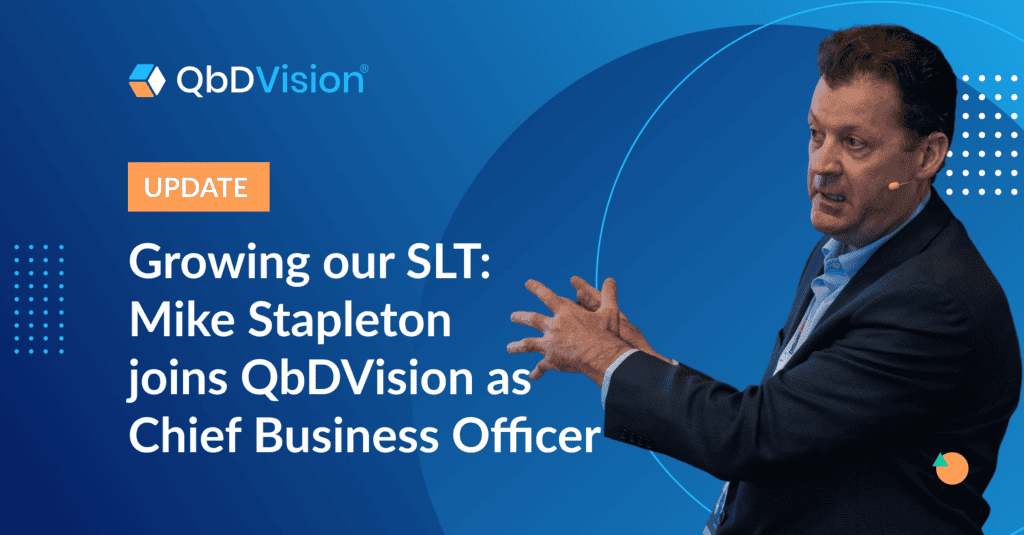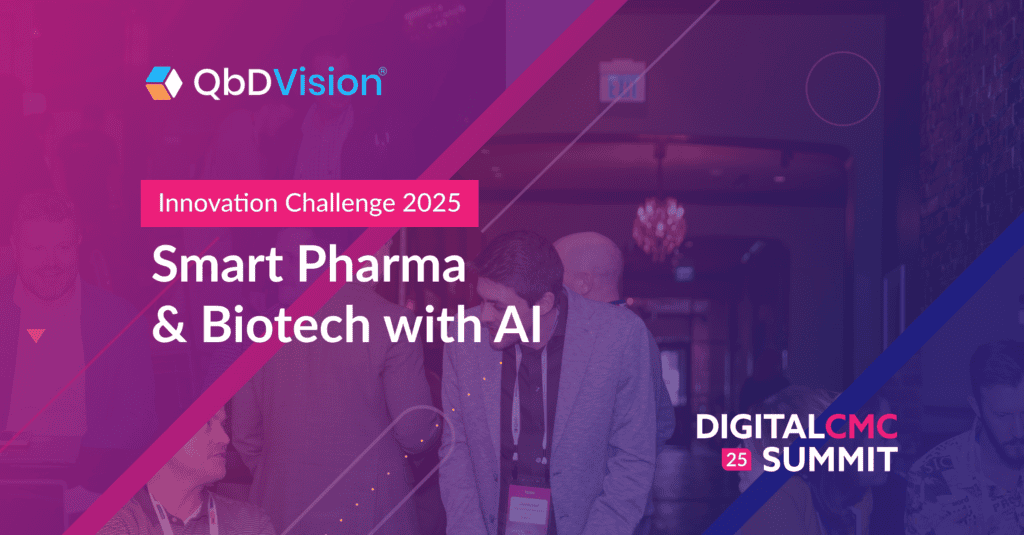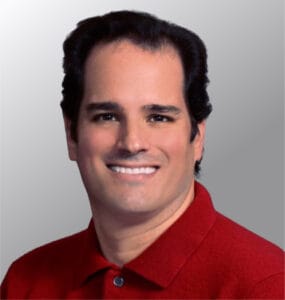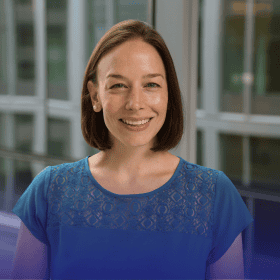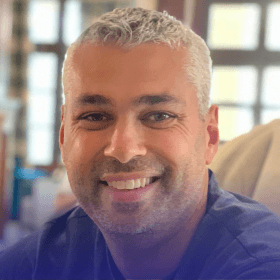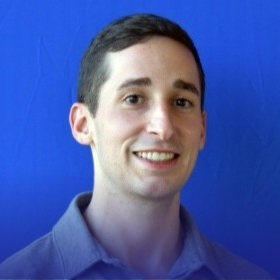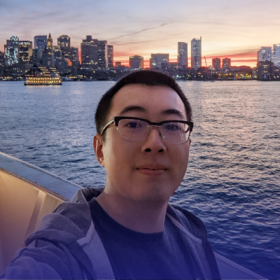The holidays are over, JPM24 is in the books, and everyone’s back home from their National Sales Meeting (and ready to never have another weather delay EVER AGAIN). For the life sciences, 2024 is officially off and running!
By now, you’ve probably had the chance to skim another year of what-to-watch trendspotting posts about where our industry is headed this year – especially when it comes to data initiatives, analytic capabilities, AI innovation, and other big trends in digital transformation.
But this year, we couldn’t let that ritual hit the rear-view without adding something you won’t get every year: a perspective from the front lines of digital drug development.
So here they are, the biggest questions, evolving dynamics, and real-world predictions that our team has their eye on for 2024. Read on for the good, the challenging, the unpredictable, and everything between.
1. Okay, okay, AI. But what powers it will continue to be a problem for drug developers.
Like just about every other business domain, conversations about AI have taken our industry by storm over the last year. Not a day goes by without more wide-eyed discussion of NLP, LLMs, AI/ML, and a host of other modalities – and how they’re ever-closer to revolutionizing the drug development process.
Don’t get us wrong: we’re as excited as any other #pharmageek about what AI may be able to do for our industry. These diverse technologies have enormous, epochal potential. But here’s a cold cup of coffee from the data trenches.
As exciting as AI may be, no model, algorithm, system, or rules tree is any better than the data it’s trained on. And when it comes to drug development data, we’re all too familiar with the structural challenges our industry still needs to resolve before it can fully tap the potential of its vast information resources.
Ask any data scientist, and they’ll tell you just how useful a document-stuffed SharePoint will be for the kind of modeling process that’s required to produce useful AI solutions. But even as exabytes of data continue to pile up in industry servers, the vast majority of it remains unstructured, unlabeled, and largely unusable for “intelligent” technologies.
Before our industry can fully tap the potential of AI, it needs to do a transformative amount of work on the way it stores, structures, and curates the data that AI needs to deliver on the sales copy.
Don’t get us wrong: we’re as excited as any other #pharmageek about what AI may be able to do for our industry. But as exciting as AI may be, no model, algorithm, system, or rules tree is any better than the data it’s trained on.
Spend trying to resolve these deep-rooted issues – as our team does every day – and you won’t be surprised to see that the first generation of much-vaunted “AI-designed” molecules aren’t living up to the years of hype that paved their way to the clinic.
Like many other frontline digital leaders, we see a lot of work needing to be done before AI lives up to its potential in drug development – with lots of instructive trials and errors along the way. Our prediction: rigorous, comprehensive frameworks like FAIR will need to be much more widely adopted and implemented before the NLP/LLM/ML can truly hit their stride in our industry.
So where do we see that work being focused in the coming year? We’re looking at you, data management.
2. This year, drug developers will need to get serious – really serious – about stewarding their data.
Remember in high school when your first big crush inspired you to dress nicer, do your hair, and sit up straight? Realistically, it may still be a while before our industry is able to fully tap the power of AI – but, well, that doesn’t mean AI can’t already inspire some very productive changes in the meantime.
To truly harness these technologies, drug developers know they need to make a big shift: from routinely capturing information (lots, and lots, and LOTS of it) to purposefully generating the kind of high-quality, structured data that AI needs to train and run on. And to do that, they need a true, comprehensive data management plan.
That’s right, this year we expect to see more and more pharma and biotech companies face the gap between producing data and preparing it for bigger purposes. Just having lots won’t be enough – any more than you’d catch that special someone’s eye by just showing up to class.
To truly harness these technologies, drug developers know they need to make a big shift: from routinely capturing information (lots, and lots, and LOTS of it) to purposefully generating the kind of high-quality, structured data that AI needs to train and run on.
Fortunately, data management efforts are already starting to gather momentum across the drug development cycle. A variety of new, bottom-up data governance and modeling approaches have already shown that they can help drug developers align data strategies with business needs in ways that help secure sustainable investment in their efforts.
Drug sponsors, CDMOs, and digital transformation experts can already point to numerous ways these efforts have helped them drive operational efficiencies and streamline biomanufacturing workflows. We expect to see many more similar initiatives deployed in the coming year, leading to what we hope will be many more similar successes.
Those programs, however, will have their work cut out for them.
3. Drug developers’ digital maturation will have some catching-up to do this year.
Despite the promising improvements drug developers have been able to achieve, our industry’s digital and analytical capabilities still have a long way to go before they can fully harness the potential of today’s technology. This year may bring a rush to finally close that maturity gap.
There’s substantial room for optimization. Just over a year ago – RIP, ZIRP! – McKinsey determined that adoption of digital solutions had helped drug developers drive a 5-15% improvement in the industry’s bottom line. But at the same time, they also estimated that the industry’s incremental digitization was already leaving a staggering $130-$190 billion in unrealized value across the entire value chain.
With that much upside on the table, most businesses would be racing to accelerate their digital transformation journeys and unlock the full potential of data-driven innovation. We hope to see exactly that kind of urgency as the year develops: after all, this year’s JPM spread some fresh signs of optimism after a year that was financially punishing in many parts of the industry.
At the same time, many doubts and uncertainties persist. Programs not yet viewed as mission-critical may still have to fight for traction in 2024.
Ultimately, though, drug developers may not be able to wait for the next bull market to fully fund and implement their transformation strategies. Bigger forces are about to force the industry’s hand.
Where will they come from?
Hang on, we’re getting a call from Silver Springs.
4. Regulators are in the digital driver’s seat. Will the industry let them stay there?
This writing has been on the wall long enough to be painted over and re-tagged a few times, and will only get clearer in 2024. Regulators are pushing toward digital submission, review, and approval processes, and drug developers will need to get ready.
FDA initiatives like KASA have been signaling this shift for some time now, and the agency is likely to accelerate the transition to digital submission pathways with M4Q(R2). Meanwhile, the EMA’s efforts to unify submissions around ISO IDMP standards are further pushing the industry to advance innovation and standardize data delivered to regulators.
Quality and compliance – especially data integrity – will be in regulators’ crosshairs too. With drug shortages plaguing patients and health systems, and quality issues most often to blame, regulators are running out of patience with market apathy toward quality control. Drug developers and manufacturers have already seen signs that the push to bolster resilience and prevent shortages is becoming a forceful shove.
Will drug developers accelerate their transformation efforts in time to help shape the pathways they’ll be required to follow? Or will inertia keep the industry on the sidelines while regulators decide what digital standards and processes they want to dictate to the organizations under their authority?
Collectively, these efforts throw down an inescapable glove: embrace digital transformation, implement harmonized data standards, and establish stronger quality management systems, or risk even more painful delays in your next NDA, IND, or BLA. While the market opportunity may not be enough to convince some risk-averse drug developers, this growing regulatory pressure is likely to force many more pharma and biotech companies out of we’ll-let-someone-else-try-it-first mode this year.
The big question for 2024: will drug developers accelerate those efforts in time to help shape the pathways they’ll be required to follow? Or will inertia keep the industry on the sidelines while regulators decide what digital standards and processes they want to dictate to the organizations under their authority?
We’re hopeful that the combination of competitive, regulatory, and economic pressures will finally drive concerted, sustained efforts toward digital maturity – as well as the collapse of industry silos that have long held back holistic life cycle approaches.
Will it happen in 2024? We’ll see. Either way, it won’t be the only challenging development that will drive demand for greater digital efficiency.
5. Access and pricing pressures will pile up pressure to streamline development processes.
Despite big steps like the Inflation Reduction Act, millions of patients are still being unsustainably pinched by high prescription drug costs. This year is likely to bring even more concerted policy efforts to address this challenge, putting drug developers under even more pressure to bring down the cost of their products – and streamline the process of developing and manufacturing them.
CMS is naturally playing a big role in these cost-mitigation initiatives: their Innovation Center is already testing a number of new pricing models, including $2 copays for some generics and better deals on expensive drugs. A one-year progress report shows that these models may help make it easier for Medicare and Medicaid beneficiaries to access and afford a range of essential medications.
The outlook is more complex when it comes to the many cell and gene therapies (CGT) arriving on the market. While these treatments can often be life-changing, they require sophisticated development resources and technically demanding manufacturing processes – both of which lead to sometimes startlingly high upfront costs for patients and health systems.
To address that financial risk, CMS is already developing a CGT Access Model based on Outcome-Based Agreements (OBAs) that save states the effort of individually negotiating CGT rates with manufacturers. Under these agreements, CMS takes on the responsibility of implementing financial and clinical outcome measures agreed upon in the OBAs, reconciling the data, and monitoring and evaluating the results.
For drug developers, of course, all these efforts raise the same question: where in their operations will these savings come from?
Pharma and biotech companies may arrive at many different answers, but CMC processes are almost certain to be a focus of any cost-saving efforts. As this policy drumbeat grows louder, digital leaders will be waiting to hear the echoes in their programs – knowing they can potentially deliver substantial efficiencies when transformation strategies are successfully implemented.
6. Smart drug developers will put their focus where it really matters: on culture, not technology.
While many drug developers may spend this year racing to modernize their data infrastructure, there’s one thing that won’t be holding them back. Today’s pharma and biotech companies can choose from more digital solutions than ever, many of them purpose-built for drug development applications.
But even as these products have grown in number and value, they’re only one piece of the transformation puzzle. For drug developers, real digital maturity will take much more than a modern tech stack. For many of these organizations, it will take a fundamental shift in business culture: from document-centric compliance to data-centric thinking.
Nurturing a digital culture takes education on the value of data, training on how to manage it properly, and a clear understanding of the value those steps support – for both the organization and the individual contributor.
As any digital transformation warhorse can tell you, deploying a new tool is one thing; changing the way users approach, manage, and think about their data is very much another. Making the shift from “throw that document on SharePoint” to “identify, label, and metatag all the data points in that report” takes more than a new tool that digitizes an old process. It takes education on the value of those data points, training on how to manage them properly, and a clear understanding of the value those steps support – for both the organization and the individual contributor.
That, of course, takes much more time and investment than simply adding a solution to a stack. But it’s also the fundamental, transformation-sustaining effort that helps turn document-dependent organizations into data-savvy organizational ecosystems.
And as economic, regulatory, and political pressures continue to converge, look for many more smart drug developers to finally prioritize that essential effort – and do so long before and long after they deploy new tools.
GET IN TOUCH
Ready to start 2024 with digital momentum?
Reach out at any time to learn how we can help you advance your transformation initiatives and secure your place in the next generation of high-performance drug developers.


